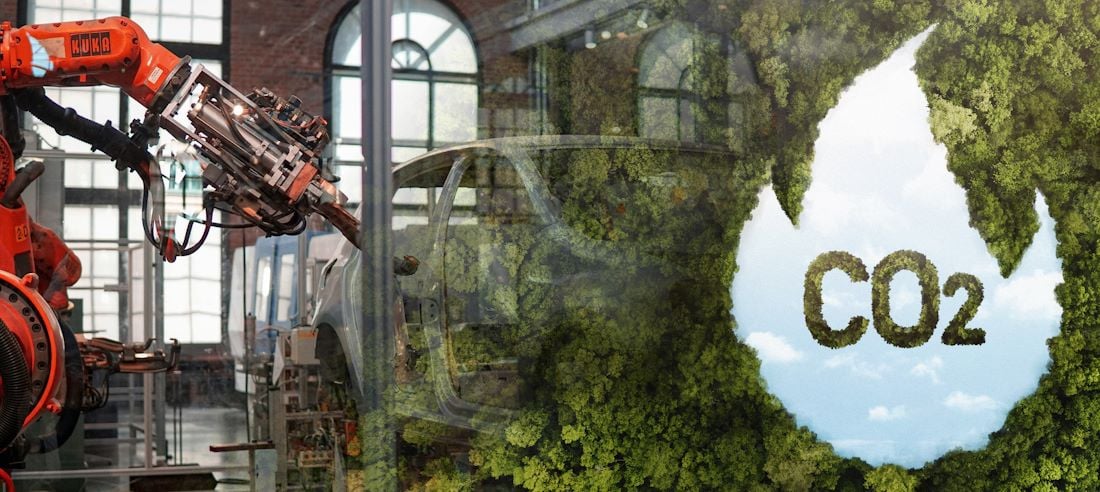Two weeks ago, in part one of this article, we got an idea of the measures that are being taken to reduce urban carbon footprints. Claiming to reduce a city’s emissions, one has to be aware of the importance of appropriate data. In this second part of the article, read how to measure and compare all the greenhouse gases being emitted in a city.
Obviously, this is a complex issue. German arrhenius institute for energy and climate policy is going to publish a study on carbon assessment by the end of this year, comparing different frameworks. As a draft version, provided to knowtheflow, stresses, it is of vital importance to be aware of the intentions behind carbon assessment. This implies that depending on the objective, a completely different method might be appropriate.
Choose an Appropriate Method
So, following the study, the first step in greenhouse gas assertion is one question: what is your reference? A project? A company? A country? Depending on the answer to this question, different methods may be appropriate. A particular issue is the applying of different methods in the same process, which might lead to divergent results. For instance, individual public institutions and single counties may report different numbers on their carbon emissions than what has been assessed for the whole country. In order to achieve future emission targets, such as Europe’s 20-20-20, the use of a consistent method should be obligatory.
But we don’t talk about countries, we talk about cities. So what is the appropriate measurement for a city? How can I assess all the emissions coming from a city?
1) Database Approach
The easiest way is to derive data from databases. This is what Andrea Sarzynski and her colleagues did when they compared urban carbon footprints from 100 different cities in the US, summarizing their findings in the report “Shrinking the Carbon Footprint of Metropolitan America” (full report PDF):
the authors examined national databases for passenger and freight transportation and for energy consumption in residential buildings.These estimates are as current as data sources will allow across metro areas, yet at the same time they are incomplete. (…) For this reason, results for any particular metropolitan area should be treated with caution.
Although it is easy, cheap and convenient to compare information from databases, it is also problematic. There is not always appropriate data, and the existing data might not fit the purpose.
2) Project Approach
When you plan on introducing a new public transport line, or expand the network of cycling lanes, hence only look at one single project, you can compare the carbon emissions before and after realizing the project. An easy approximation of total carbon emissions from traffic can be created by multiplying the average fuel consumption with the average vehicle miles of travel (VMT). For public transport, keep in mind the usage rate (four in five train seats generally remain free, statistically speaking).
However, “as cities are complex, a project based approach is insufficient”. Is what conclude the authors in the study “Climate Change and Cities: First Assessment Report of the Urban Climate Change Research Network”. Meaning that introducing electric cars or establishing one project on mobility is not enough for a serious carbon emission reduction. Instead, they call for systematic innovations in spatial organization and transportation planning.
3) Reducing Complexity via Software
So far, we have looked at measuring existing carbon emissions, which is hard enough. But estimating future emissions is even tougher. There is a need to analyze and predict the carbon emission reduction that follow the different measures, in order to chose the most effective alternative. As public funds are limited, appropriate alternatives require being efficient and cheap, too. Adrian Smith, who developed a series of ideas how to decarbonize Chicago (Toward Zero Carbon: The Chicago Central Area Decarbonization Plan, available on google books), comes to the conclusion that we need new computer tools:
New computational tools are needed to simulate and predict the dynamic effects and interrelationships of a vast number of possible strategies
Smith programmed his own tool. But there are countless software packages on the market, which are ready to use. So if you have the possibility, you should really consider buying a professional software tool. Depending on the budget and your goal, the range of carbon footprint software starts with free tools for personal use and offers sophisticated programs for professional use as well.
Article image shows the city of Seattle, based on a skyline by dherrera_96, loaded with three icons of sustainability.




